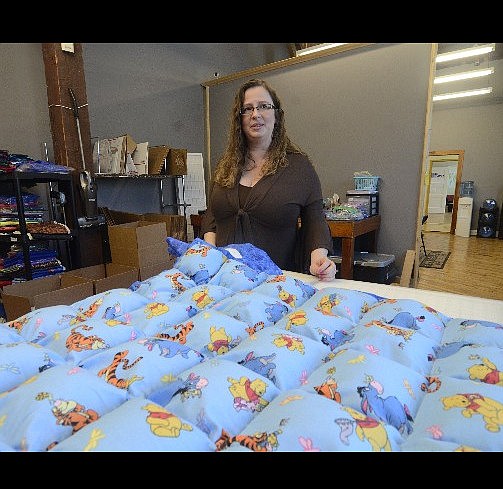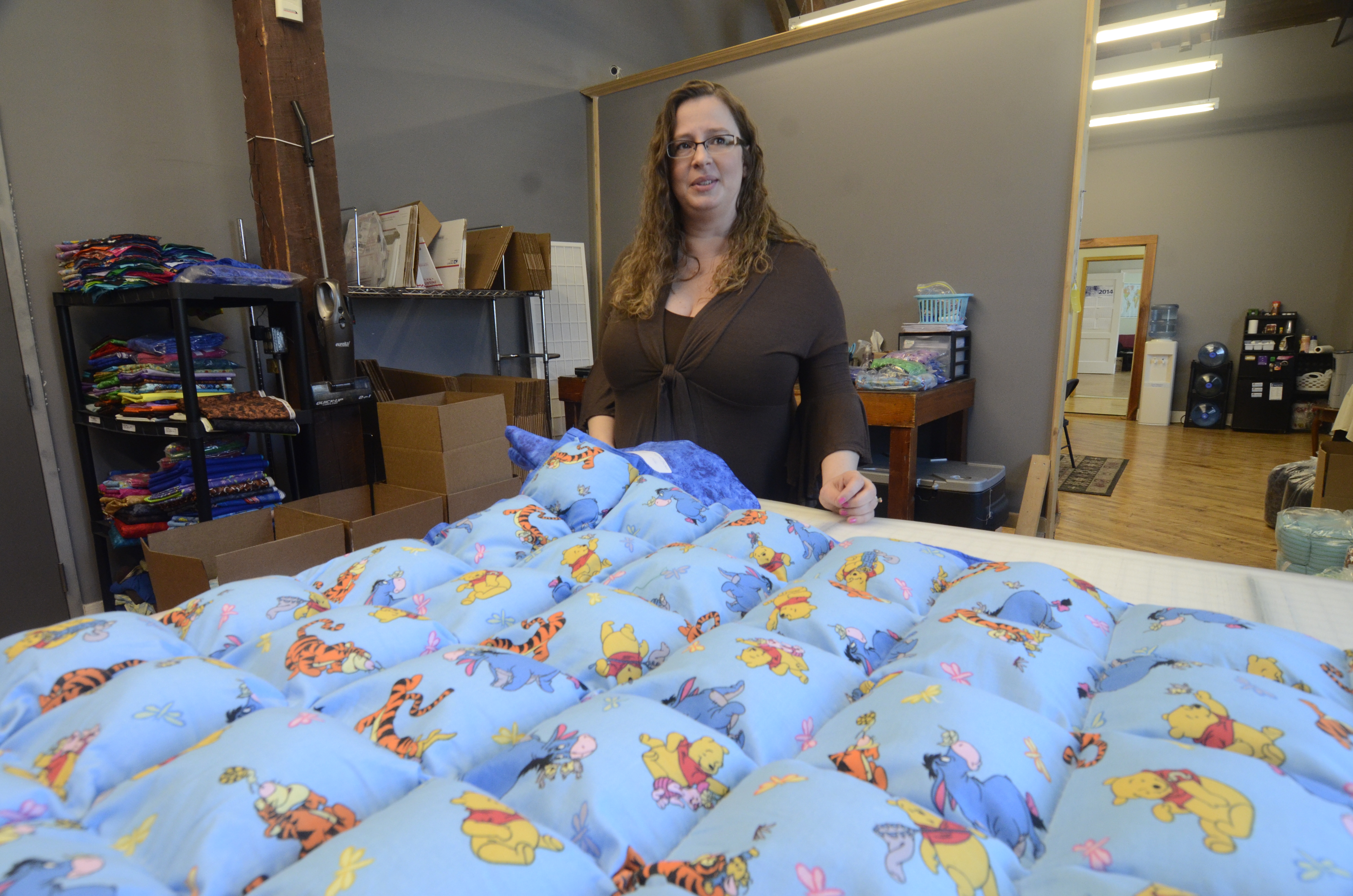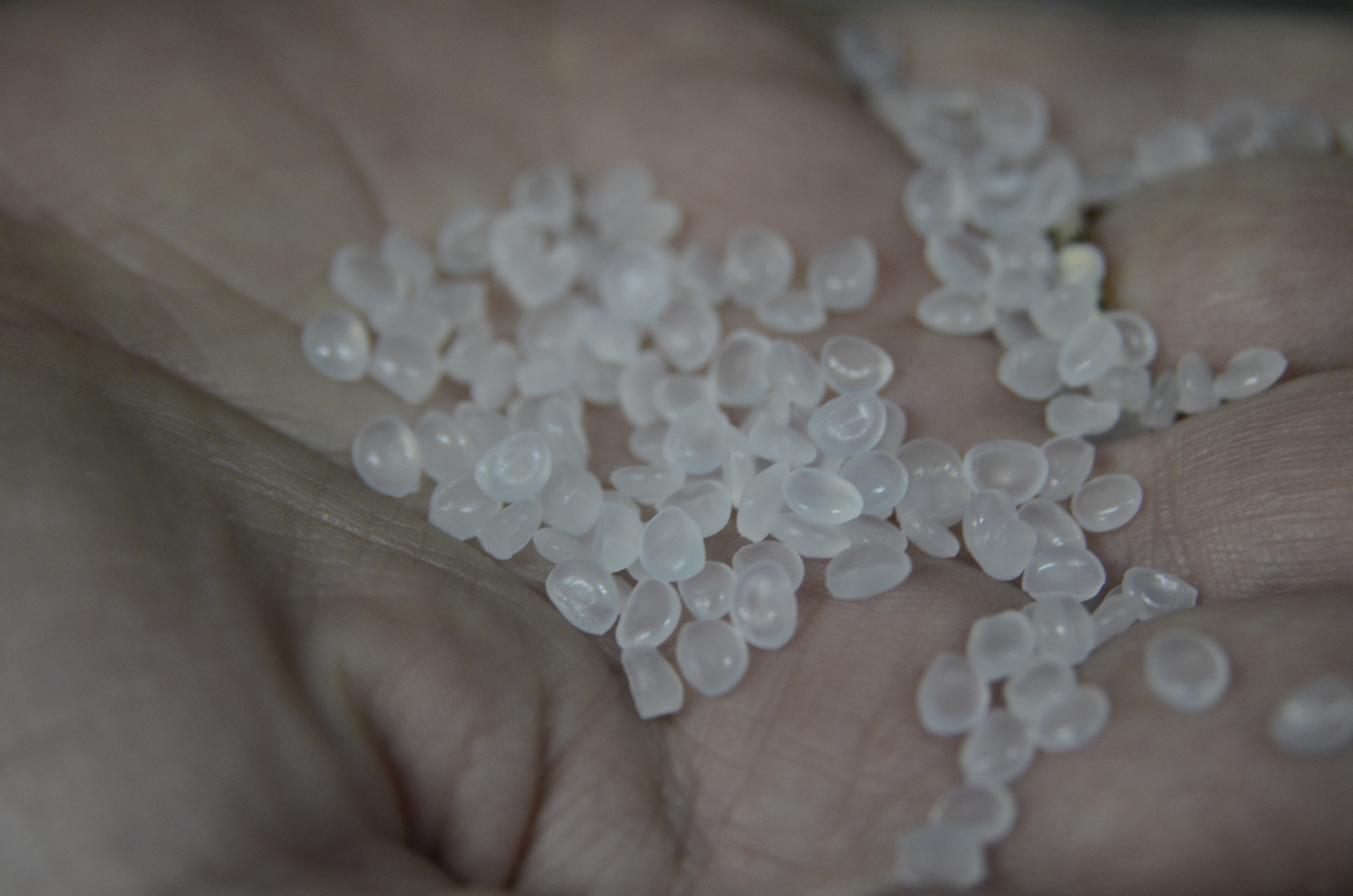Six years ago, Donna Chambers started her business with no capital.
Because her grandson is autistic, she'd decided to start selling weighted blankets -- blankets that are filled with pockets of plastic pellets, weigh anywhere from five to 20 pounds and can calm many children with special needs, especially autistic kids. It's like swaddling a baby.
And in 2008, Chambers was convinced she could make a better blanket -- and a better website -- than the existing weighted blanket companies.
But she didn't have any extra money to start a business.
So she poked around online and discovered that other companies featured available fabrics on their websites, giving consumers a chance to customize their orders. Chambers made a trip to Walmart and took photos of two different fabrics.
"I did not buy the fabrics," she said. "I just took photos of them and posted the pictures on my website. Then when people ordered, they paid up front, I went and bought the fabric, made the blanket and sent it to them."
She laughs. Those were the early days, when she called customers during lunch breaks at the financial company she worked for. When she packaged orders on the company's conference table. Before she quit her full-time job and completely committed to her company, SensaCalm.
Six years later, she's set to break $1 million in sales. She manufactures and sells around 150 blankets a week, is headquartered in St. Elmo and employs about 25 people. Type "weighted blanket" into Google and the first result is SensaCalm.
"We've doubled our sales almost every year," she said. "It's been amazing."
Weighted blankets help autistic children sleep through the night. The blankets give many kids a sense of security, generally calming otherwise on-edge children and adults. Chambers sells her blankets for between $65 and $200, cheaper than the medical-grade alternatives on the market.
Google has been absolutely critical for SensaCalm. The company fervently defends its spot at the top of the results page.
"Twenty years ago this business would not have taken off," Chambers said. "We've been totally Internet. That's where we make our money."
Because of the website, most of SensaCalm's blankets are still made-to-order. Each blanket is handmade by one of Chambers' seamstresses, who work from home as contractors paid by the piece, spending anywhere from two to six hours on each blanket. Each seamstress makes a weekly trip to SensaCalm's headquarters to pick up the week's supplies and drop off completed blankets to be shipped.
The system gives seamstresses flexibility while ensuring quality stays high, said 2-year seamstress Chris Polk.
"I can work whatever hours I want," she said. "It's incredibly convenient. I make about 10 or 12 blankets a week and I say a prayer over every blanket I send out. If I've made several for on child, sometimes I slip a note in for the child."
Chambers has tried to keep that personal, customized approach to business even as the company has grown leaps and bounds. She often receives letters from customers that rave about how much of a difference SensaCalm's weighted blankets have made for their children or relatives.
But she's still not sure what her 10-year-old grandson thinks of the business he inspired. He's severely autistic, and he doesn't speak.
"I'm not really sure what he thinks," Chambers said. "He likes to come here, though."
Contact staff writer Shelly Bradbury at 423-757-6525 or sbradbury@timesfreepress.com.


